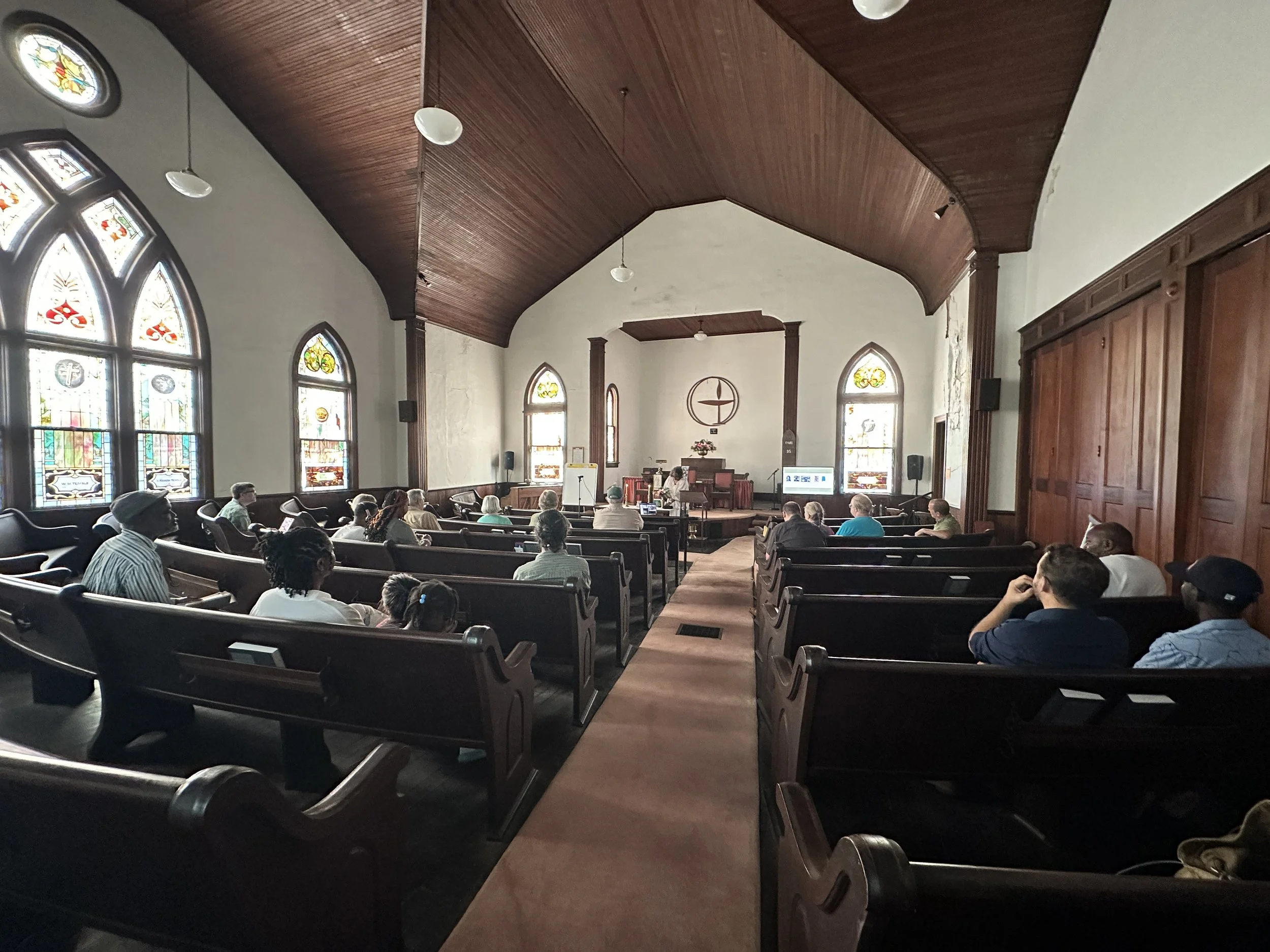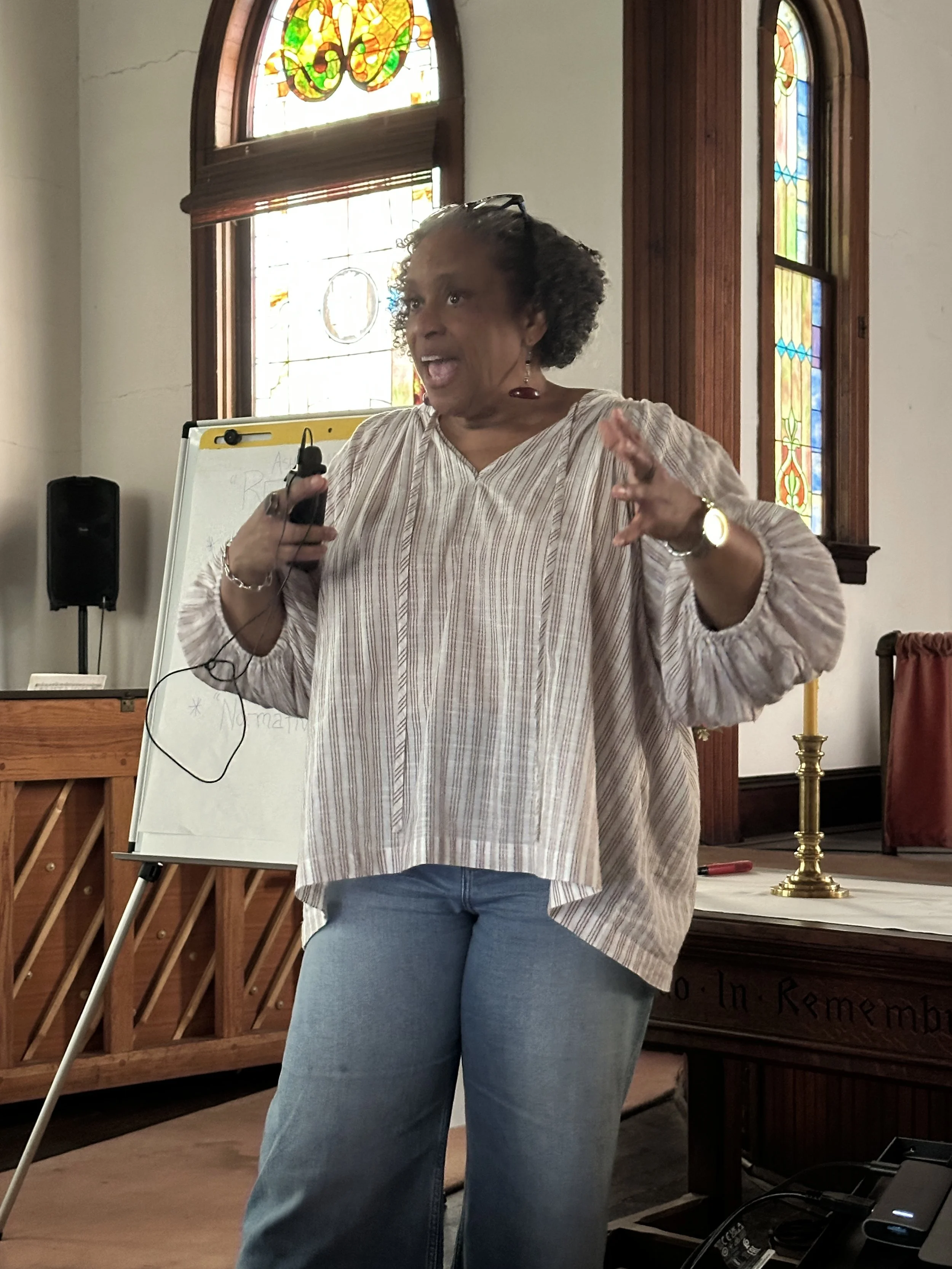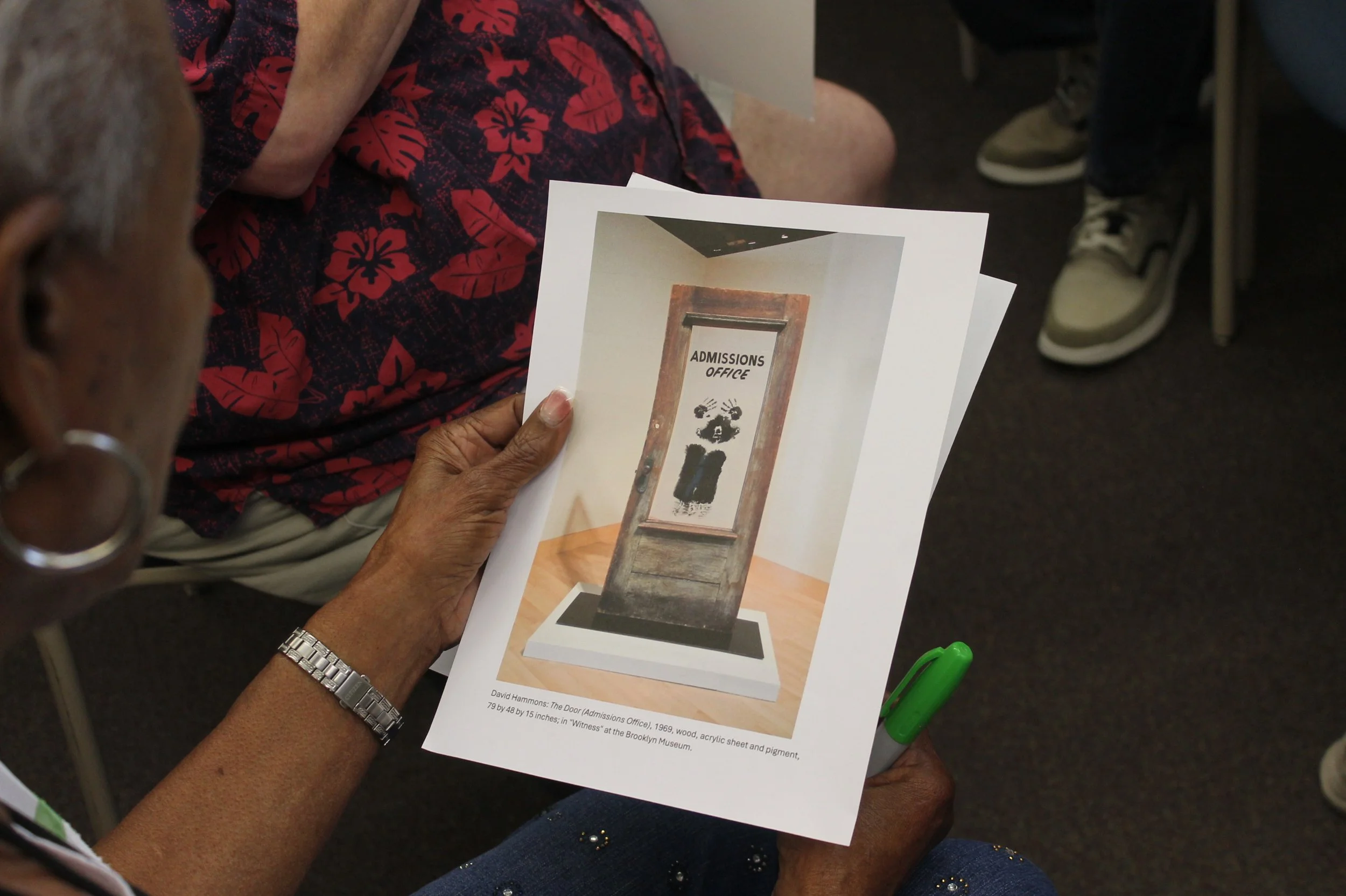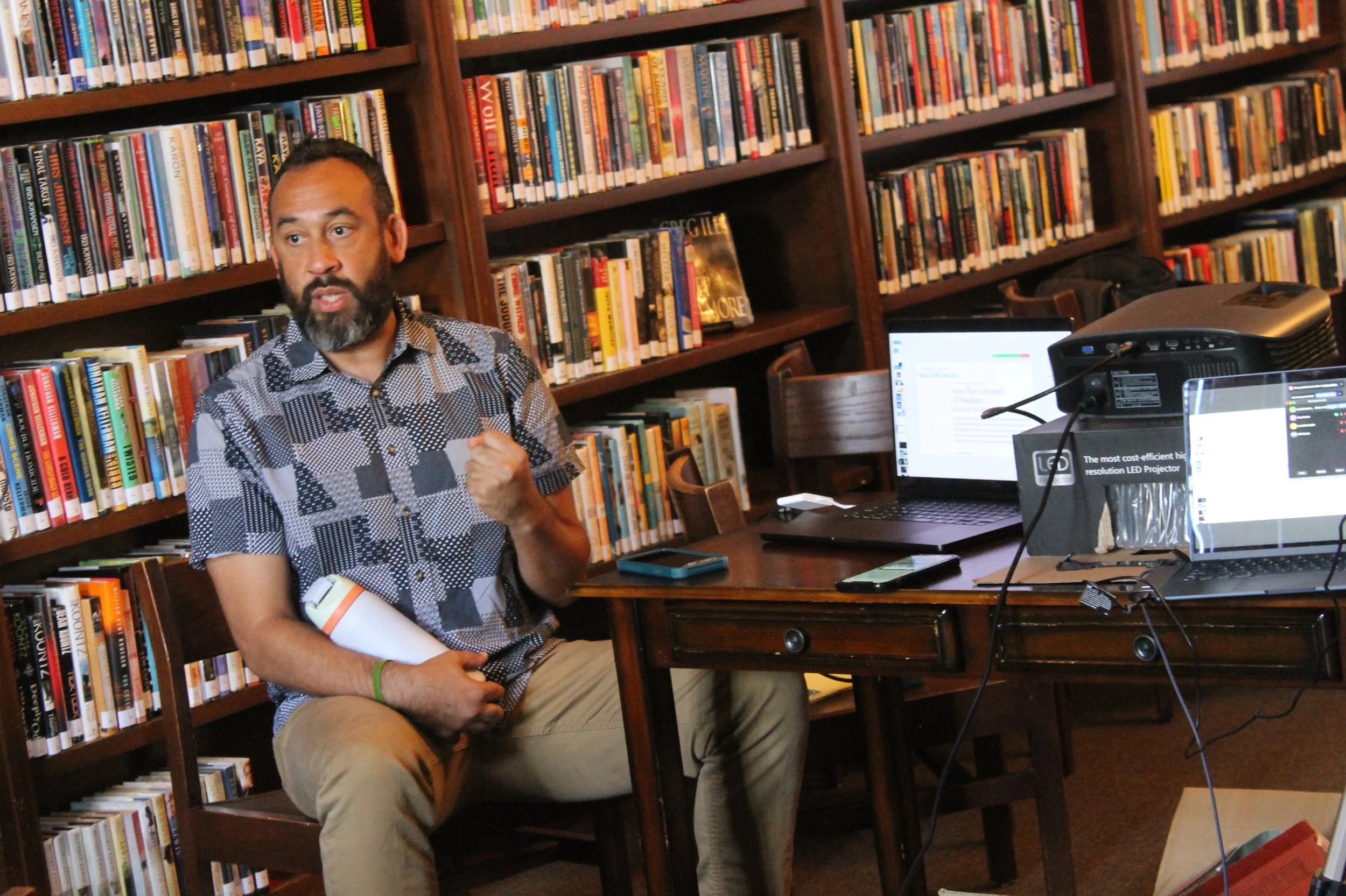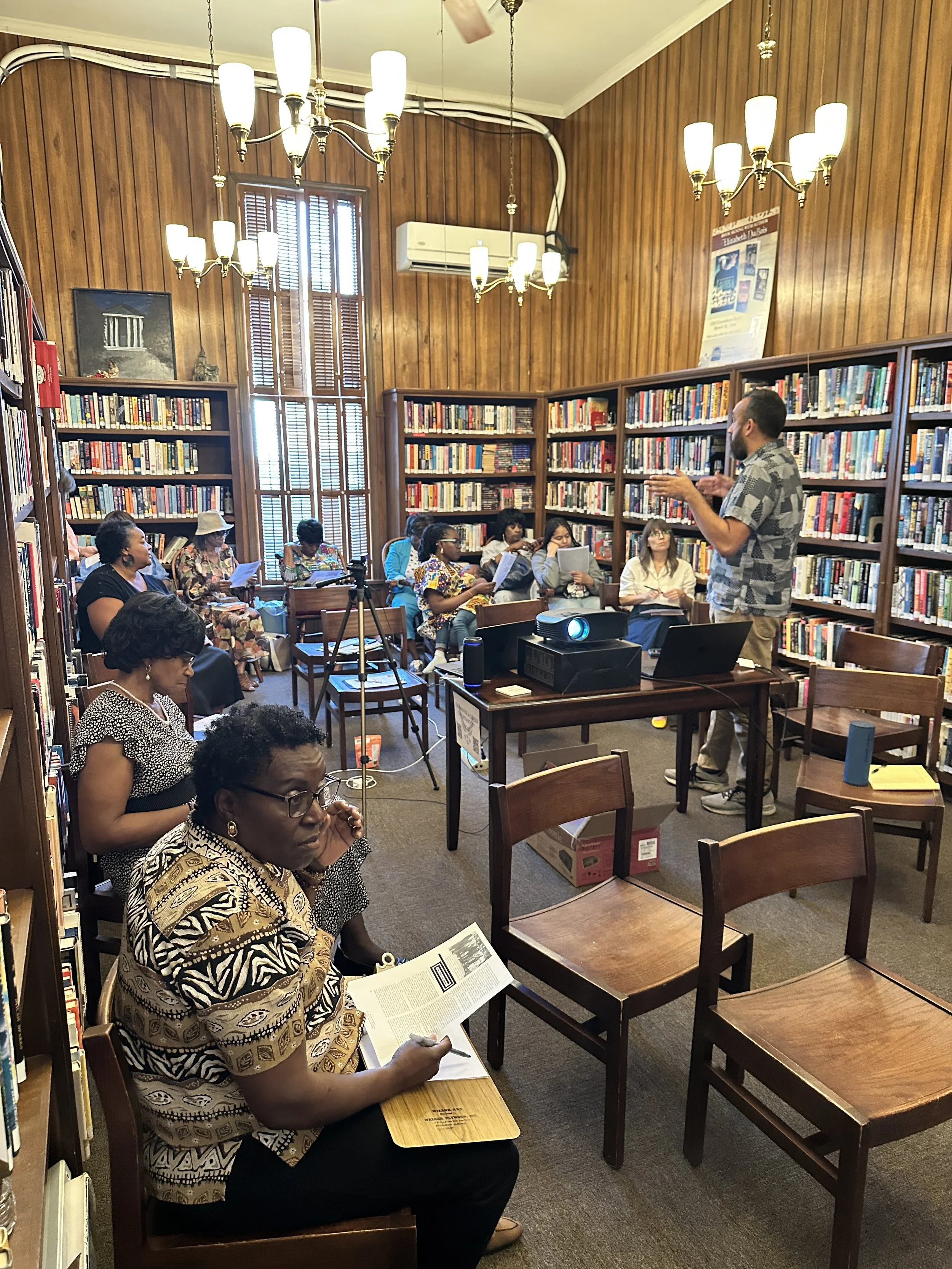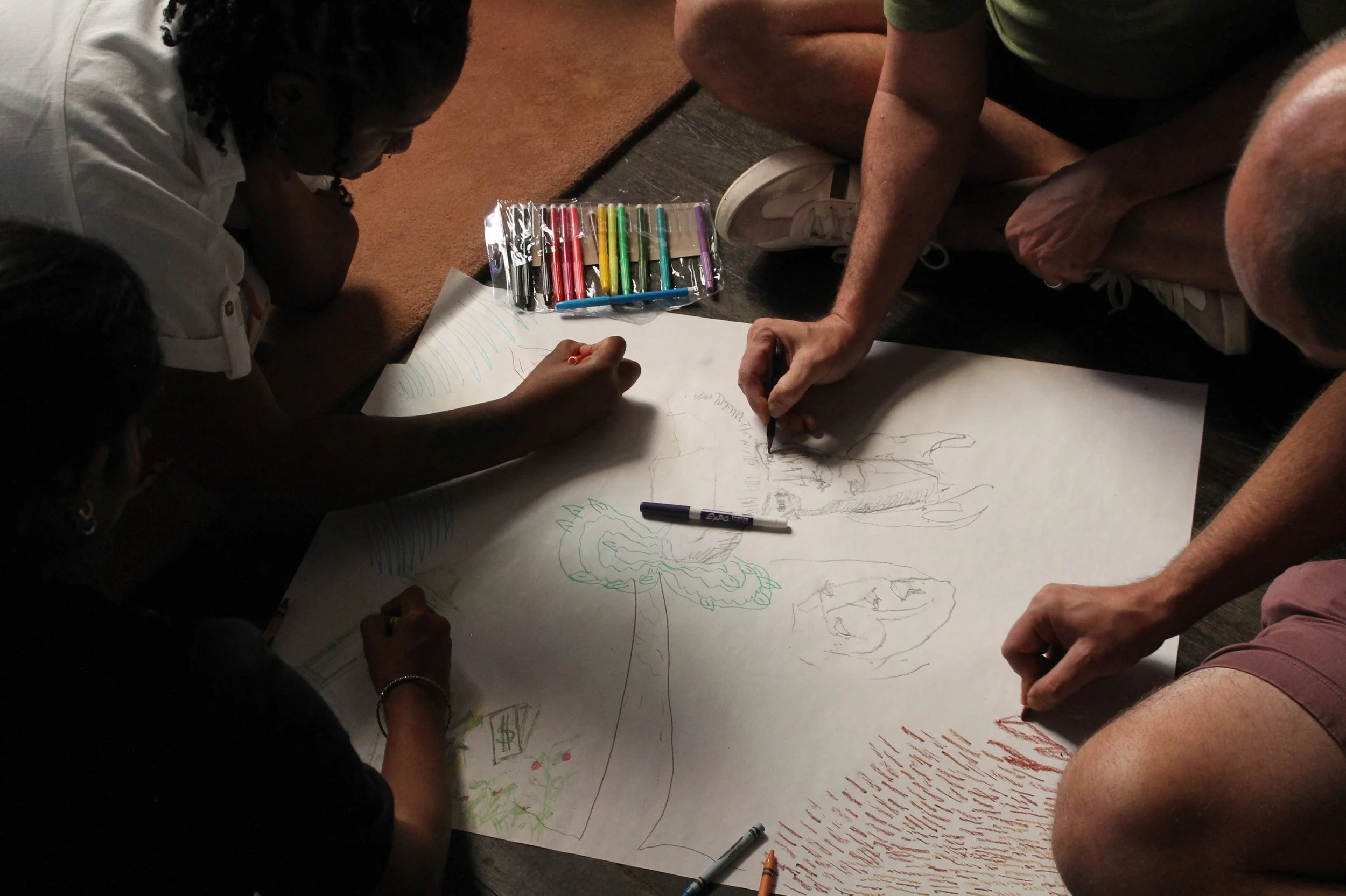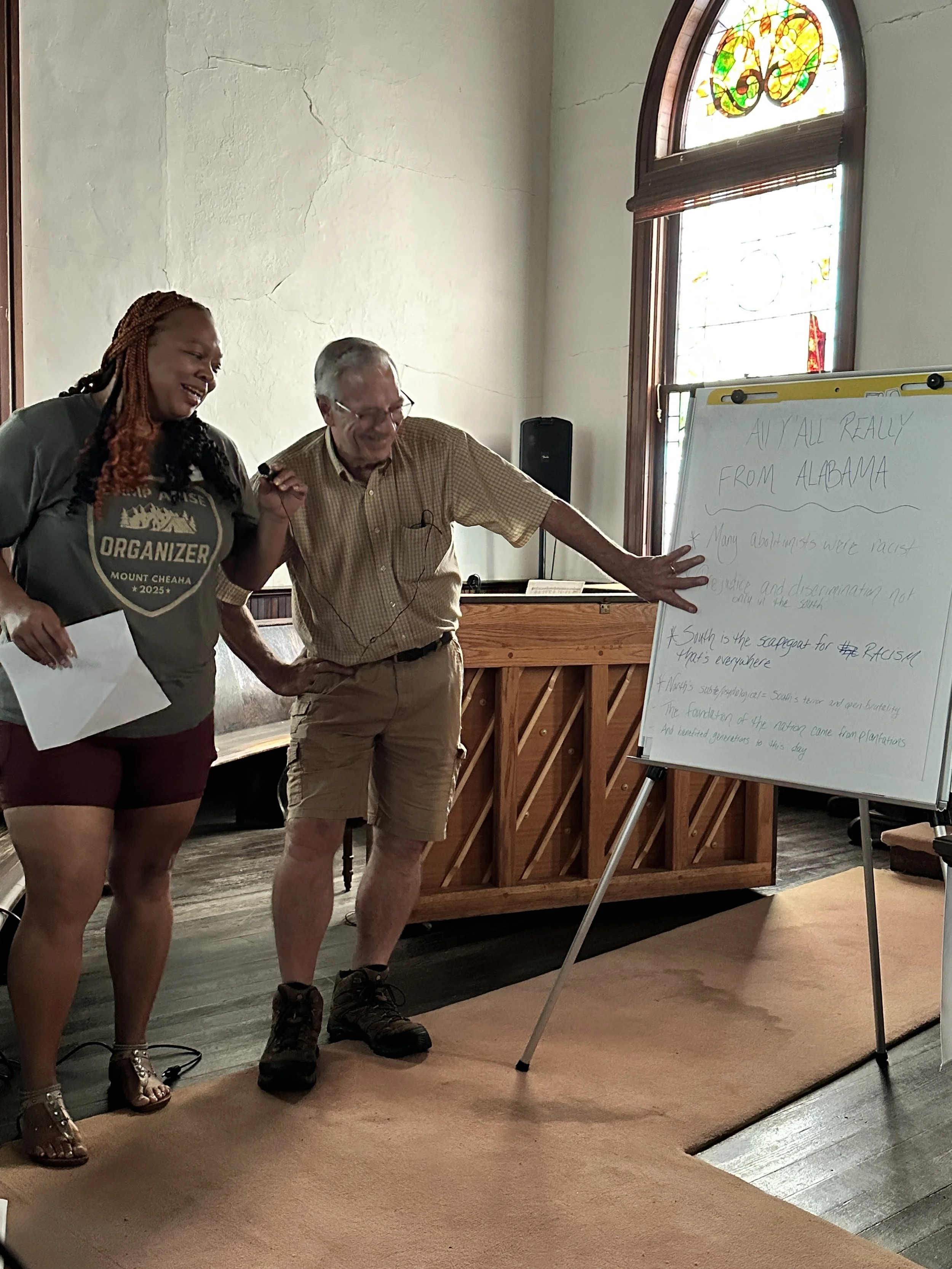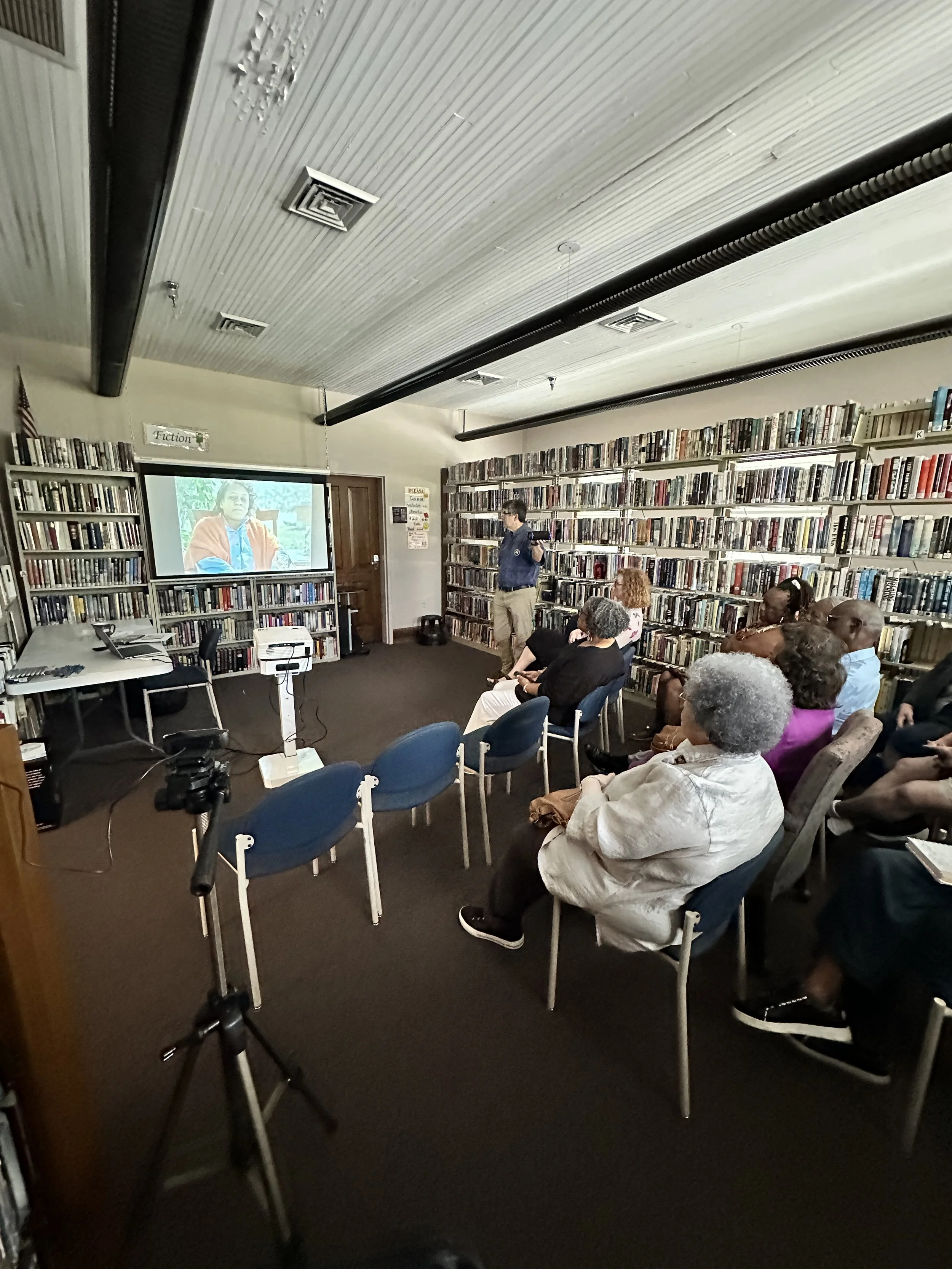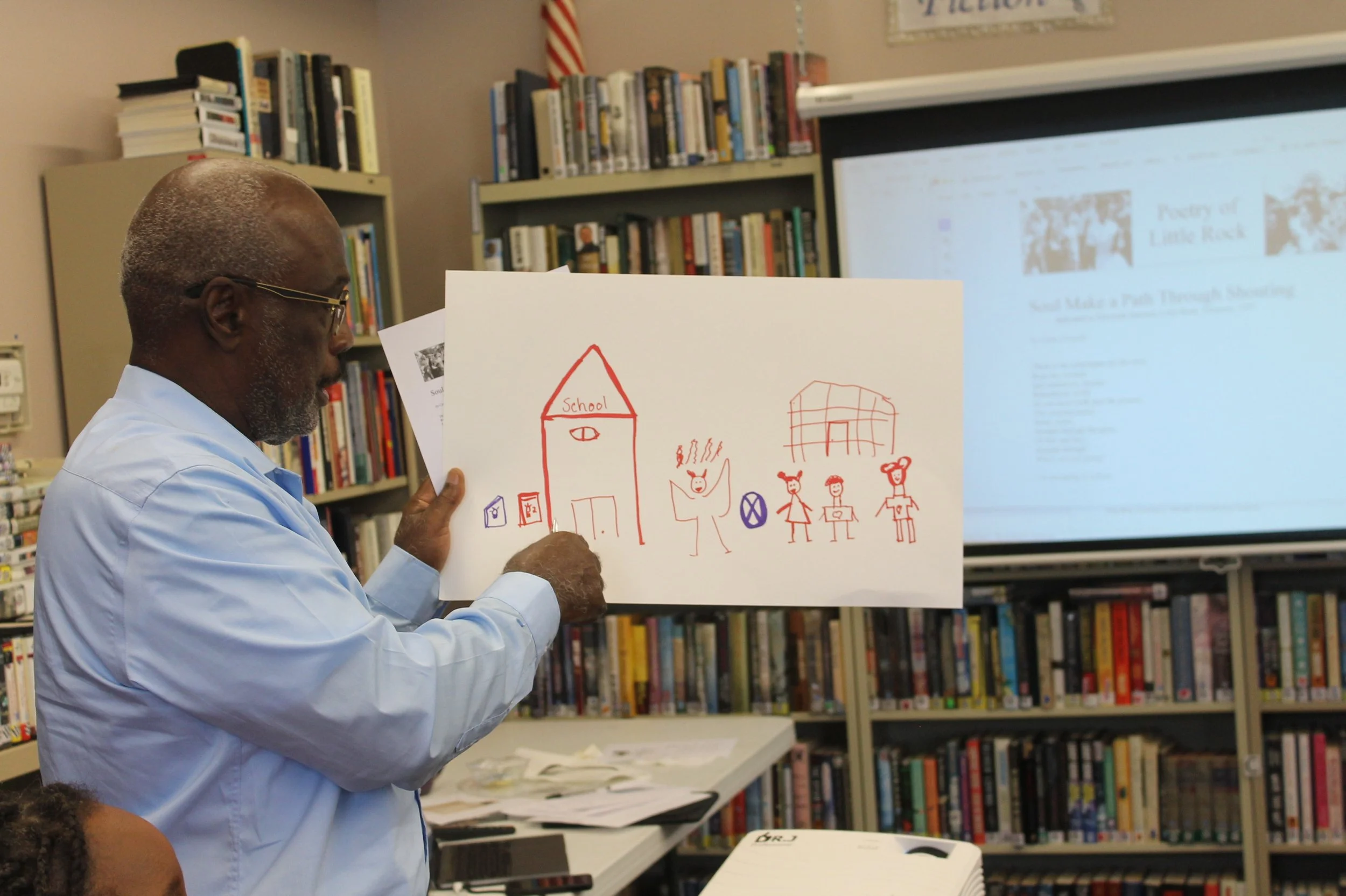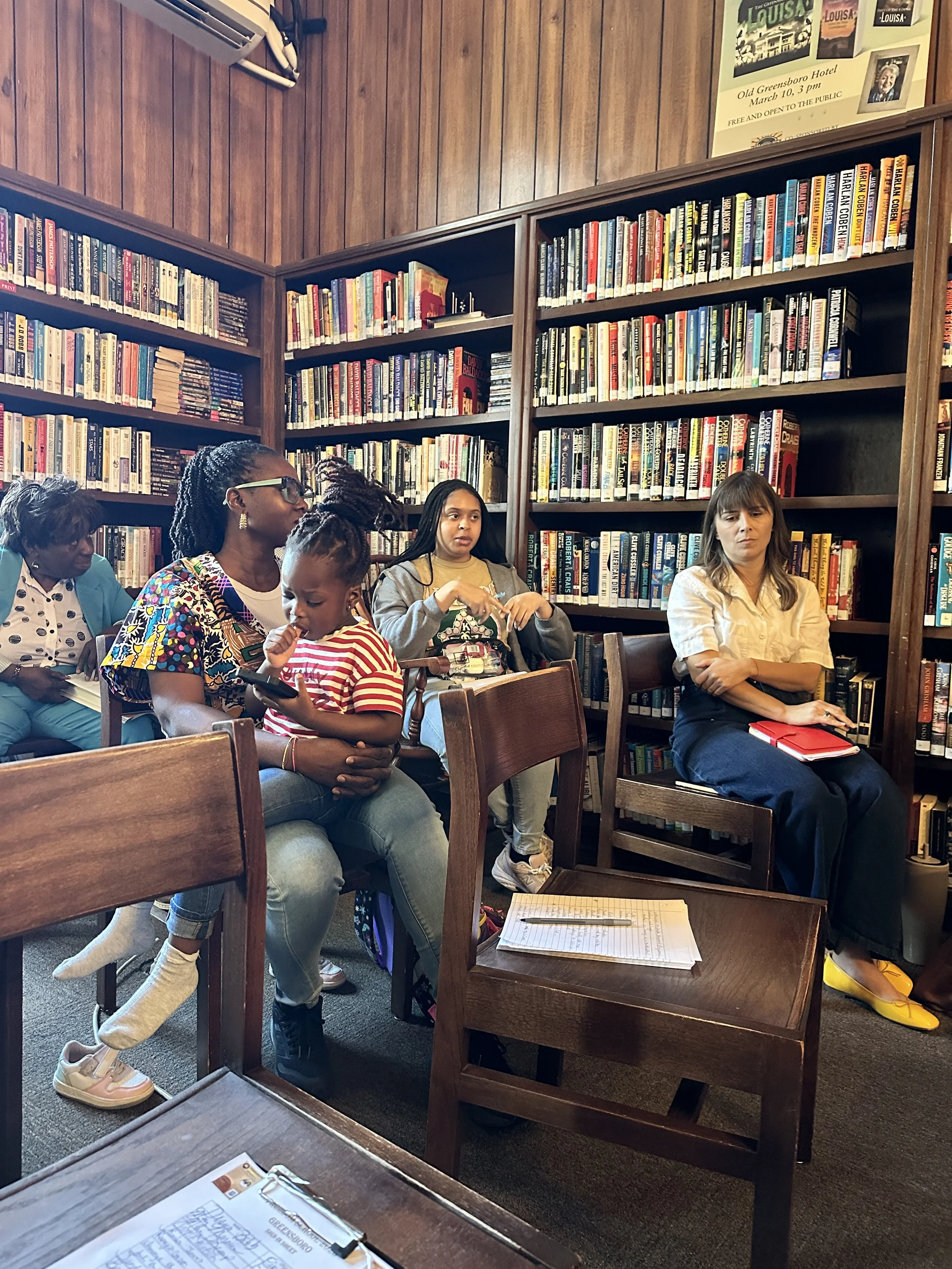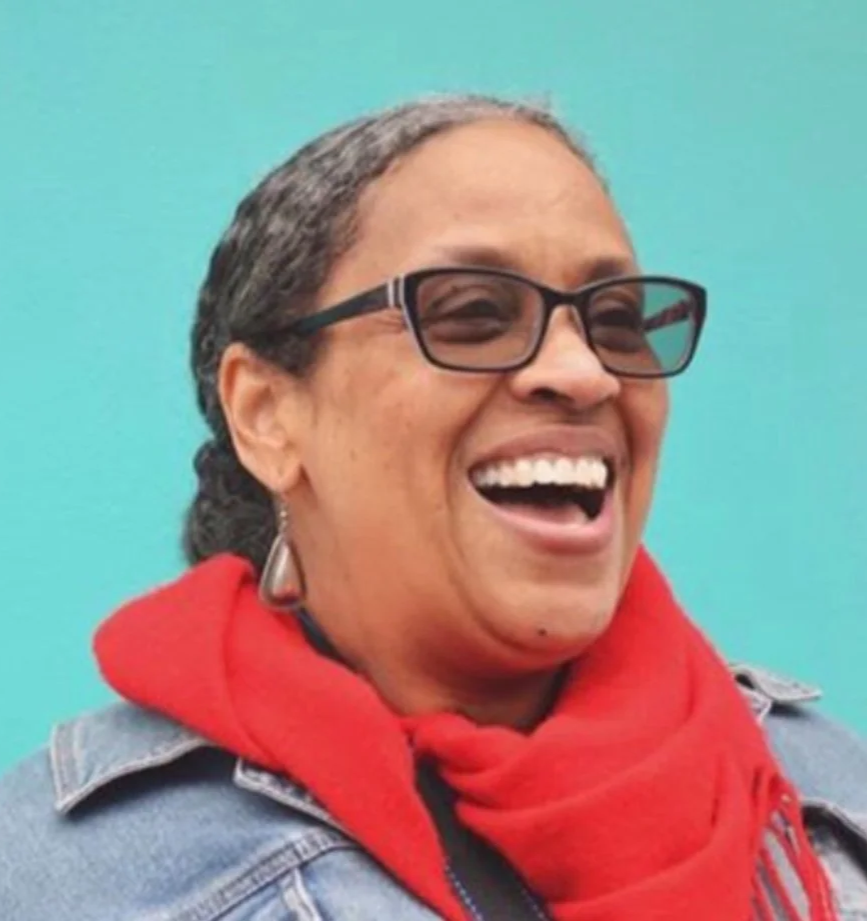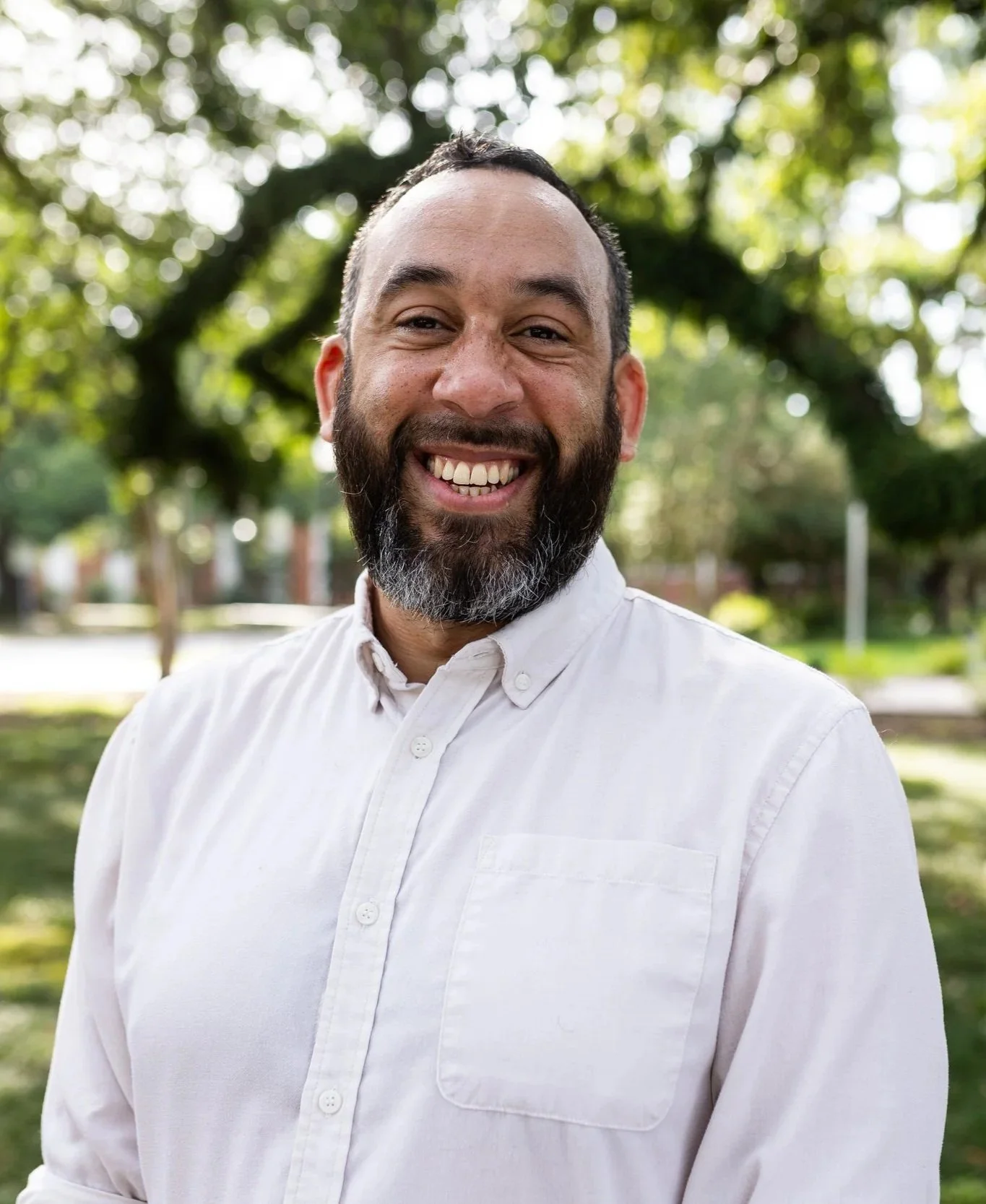Freedom School
In 1964, civil rights groups like SNCC and CORE launched Freedom Summer, creating Freedom Schools—alternative education spaces that taught Black history, civics, and critical thinking.
Now, 61 years later, Higher Ground Society is answering that call again. Amid threats to voting rights, bodily autonomy, LGBTQ+ safety, and immigrant communities, our need for civic education and collective memory has re-emerged.
Starting August 2025, HGS will hosted three FREE Saturday educational workshops exploring overlooked people, places, and philosophies that shaped the Civil Rights Movement. Led by some of Alabama’s brightest scholars, these sessions connected past and present struggles—centering community, education, and self-determination. The sessions were:
The Supreme Court, Poetry, & Social Justice in Alabama presented by Dr. Zanice Bond in Camp Hill
‘Pressed to the Wall…But Fighting Back’: Histories of Black Self-Assertion During and After the Jim Crow Era by Dr. David Carter
Beyond the 1964 Civil Rights Act & 1965 Voting Rights Act: How Three Black Women Reimagined Freedom and Citizenship presented by Dr. Theodore Foster III
The 2025 Higher Ground Society Freedom School was made possible with support from the
Be a part of HGS Freedom School History!
Folks who attended the Summer 2025 Freedom School sessions received limited edition HGS Freedom School buttons to commemorate the occasion. Now you can snag your own button with a $6 donation! All proceeds go toward future Freedom School operations.
Order yours today!
Scenes from Freedom School 2025
Upcoming Freedom School Sessions:
The 2025 Freedom School sessions have concluded. Revisit this page later to learn of future Freedom School initiatives.
Meet the 2025 Teachers
Dr. Zanice Bond
Zanice Bond is currently an association professor of English in the Department of Modern Languages, Communication, and Philosophy at Tuskegee University, where she teachers first-year English composition, African American Literature, Southern literature, and Modern English Grammar and Linguistics. Dr. Bond earned her Ph.D. in American Studies from the University of Kansas. She is on the board of the Alabama Writers’ Forum and serves as its president. She was the recipient of a Booker T. Washington Leadership Institute mini-grant for 2021-2022 and was co-director of a two-year NEH grant, “Literary Legacies of Macon County and Tuskegee Institute: Zora Neale Hurston, Ralph W. Ellison, and Albert Murray.” Zanice was also guest curator at Tuskegee’s Legacy Museum for the “Soul of Zora: A Literary Legacy through Quilts” exhibit that ran from March until September 2019. She has served as lead scholar for two Alabama Humanities Alliance SUPER Teacher Institutes—”Examining Dyann Robinson’s The Three Wives of Booker T.” and “All Y’all Really From Alabama: Teaching the Poetry of Ashley M. Jones.” Zanice is an Alabama Folklife Association Cauthen Fellow (2022-2023).
Dr. David Carter
David Carter received his Ph.D. from Duke University in 2001 and a B.A. with Highest Honors in History from the University of North Carolina at Chapel Hill in 1992. Carter’s research and teaching interests are in the history of the Black Freedom Struggle, the history of the American South since the Civil War, the history of racial terror lynching, “race riots,” and other forms of racialized violence, and U.S. history since 1945, especially the Vietnam War era. He is particularly drawn to the role of race, ideology, and historical memory in shaping American history. Carter is the author of The Music Has Gone Out of the Movement: Civil Rights and the Johnson Administration, 1965-1968, a study of the shifting relationships between the presidency of Lyndon Johnson and grassroots advocates of racial and economic equality. His commentary on the history of the Kerner Commission, the National Advisory Commission on Civil Disorders, is featured in the documentary film The Riot Report, which premiered in 2024 on PBS as part of the “American Experience” series. Carter was involved for several years in collaborative research and writing on Lyndon Johnson’s civil rights policies with Kent Germany of the University of South Carolina, resulting in the co-edited volume The Presidential Recordings: Lyndon B. Johnson: Mississippi Burning and the Passage of the Civil Rights Act (Norton, 2011). He has also served as project consultant on civil rights history for various grants with colleagues in the Social Science program in Auburn’s College of Education and has worked on multiple occasions with teachers from Auburn, Opelika, and beyond over the past two decades.
Dr. Theodore Foster III
Dr. Foster is a scholar trained in Black studies with expertise in U.S. Black Freedom Movement and Civil Rights Movement history, political theory, and Black visual culture. Dr. Foster is a native of Birmingham, Alabama where he earned his B.A. in African American Studies at the University of Alabama at Birmingham. He also holds an M.A. from Ohio State’s Department of African American and African Studies and a Ph.D. from Northwestern University’s Black Studies department. His research explores contradictory ways we remember the U.S. Black Freedom and Modern Civil Rights Movements through iconic images, popular culture, museums, political campaigns, legal reforms, contemporary social and racial justice movements, social media, and Black cultural production by various Black artists such as Theaster Gates, Bethany Collins, and Dawoud Bey. He is completing a book manuscript based upon his dissertation research tentatively titled “The Firehouse Next Time: Civil Rights Memory, Neoliberalism and Black Visual Culture.” Most recently Dr. Foster published a short essay for the Louisiana Endowment for the Humanities 64 Parishes online encyclopedia and magazine exploring a significant 1961 Supreme Court civil rights case known as Garner v. Louisiana.



